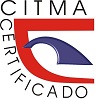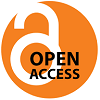Procedures and results of a diagnosis of critical thinking in students of Colombian Secondary Education
Procedures and results of a diagnosis of critical thinking in students of Colombian Secondary Education
Keywords:
critical thinking, diagnosis, teaching-learning process, athlete with a disability F (54)Abstract
Contemporary society faces a contradiction between the rapid production and dissemination of knowledge, as a consequence of advances in science and technology, and the need for students in secondary education to select, verify, assimilate and apply it to the solution of problems, school and everyday problems. This requires that in the teaching-learning process, skills associated with critical thinking are developed, such as interpreting and arguing, based on their diagnosis. The objective of this article is to analyze the procedures and results of a diagnosis of the initial state of the development of critical thinking in 19 eleventh grade students of the Educational Institution “El Triunfo” in Colombia as a starting point for the design of a strategy that contributes its improvement. The diagnosis is based on the operationalization of the variable development of critical thinking in the teaching-learning process of Chemistry, previously characterized. Empirical methods were used for data collection (pedagogical test, semantic differential technique, observation guide for students and a survey for teachers) and statistical-methematical methods for processing. The results showed the effectiveness of the procedures used in the diagnosis, by revealing the insufficient development of skills related to critical thinking in the students. In teachers, limited application of participatory methods in the teaching-learning process and attention to individual differences, in addition to the absence of activity systems for students.
Downloads
References
Amaya I.F. y Remolina N. (2024). Desarrollo del Pensamiento crítico en estudiantes universitarios. Revista Interamericana de Educación y Pedagogía. Vol. 17(1). ISSN: 1657-107X. Disponible en https://doi.org/10.15332/2500-5424
Andrade V. S. (2024). El pensamiento crítico desde el proceso de enseñanza-aprendizaje de la Química en la educación media colombiana. Tesis en opción al grado científico de Doctor en Investigación en Ciencias de la Educación. Centro Universitario ISIC, Nayarit, México
Arriaga, M. (2015). El diagnóstico educativo, una importante herramienta en manos de docentes. Revista Atenas. 3(31) p.14. Disponible en http://atenas.mes.edu.cu/index.php/atemas/article
Da Costa C.C. y Goicochea J.A. (2023). El aprendizaje basado en proyectos. Una modalidad facilitadora del éxito escolar. Revista científica multidisciplinar Ciencia Latina. Vol 7 (2). Disponible en https://doi.org/1037811.rcm.v7iz.5606
Fabian J.M. y Santa María H.R. (2024). Análisis del pensamiento crítico desde un estudio bibliográfico general. Una contribución al contexto educacional peruano. Revista Santiago. No. 163, ISSN: 2227-6413, disponible en https://santiago.uo.edu.cu
Halpern, D. (2013). Pensamiento y conocimiento: una introducción al pensamiento crítico. Prensa de Psicología.
Manassero M.A. y Vázquez A. (2023). La evaluación de las destrezas de pensamiento crítico: un diagnóstico de los estudiantes de Primaria. Revista Evaluar. 23(2), p. 40-56, disponible en https://revistas.unc.edu.ar/index.php/evaluar
Paul, R., & Elder, L. (2005). Principios, Desempeño, Indicadores y Resultados con una rubrica maestra en el pensamiento crítico. Editorial Fundación para el pensamiento crítico.
Piaget, J. (1969). Psicología y Pedagogía. Editorial Ariel, Barcelona. https://books.google.com/books/about/Psicolog%C3%ADa_y_pedagog%C3%ADa.html?hl=es&id=1cQxrOXb_CgC
Quíntela, M.J, et al (2024). Diagnóstico autogestión de la Matemática Superior I, en contabilidad y finanzas. Mendive. Revista Educación 32(1), 3470 https://mendive.upr.edu.cu/index.php/MendiveUPR/article
Ramírez M.L. (2020). La asesoría disciplinar, actores y factores en la práctica educativa. Revista Dilemas contemporáneos: educación, política y valores. Vol. VII (2). Recuperado https://dilemacontemporaneo.educare.politicayvalores.com
Rico, P., & Palma, E. M. (2004). Algunas consideraciones para la evaluación en educación primaria. Pueblo y Educación.
Romero G.C. y Chávez B.J.(2021). El pensamiento crítico en el desarrollo personal de los adolescentes. Revista científica El dominio de la ciencia. ISSN:2477-8818. Vol 7 (6) p. 3-23. Disponible en https://dex.doi.org/10.23857.23857/dc.v7i6.2408
Silvestre, M. y Zilberstein J. (2002). Hacia una didáctica desarrolladora. Editorial Pueblo y Educación, La Habana, Cuba.
Vygostky, L. S. (1982). La historia del desarrollo de las funciones psíquicas superiores. Editorial Científico Técnica.
Published
How to Cite
Issue
Section
License
Copyright (c) 2024 Noemi Pupo Lorenzo, Valerio Santos Andrade-Palacios

This work is licensed under a Creative Commons Attribution-NonCommercial 4.0 International License.
Horizonte Pedagógico es una revista Open Access, lo que quiere decir que todo su contenido es accesible libremente sin cargo para el lector o su institución. Los usuarios están autorizados a leer, descargar, copiar, distribuir, imprimir, buscar o enlazar a los textos completos de los artículos de esta revista sin permiso previo del editor o del autor, de acuerdo con la definición BOAI de open access. Los autores que publican en esta revista están de acuerdo con los siguientes términos: Los autores conservarán los “Derechos de autor” y garantizan a la revista el derecho de ser la primera publicación del trabajo. La revista se encuentra protegida bajo una licencia internacional de Creative Commons Attribution License Atribución 4.0 Internacional (CC BY NC 4.0), que permite a otros compartir (copiar y redistribuir el material en cualquier medio o formato) y adaptar (remezclar, transformar y construir a partir del material), para cualquier propósito, incluso comercialmente. Bajo las siguientes condiciones: atribución (usted debe dar crédito de manera adecuada, brindar un enlace a la licencia, e indicar si se han realizado cambios y no comercial — Usted no puede hacer uso del material con propósitos comerciales. Puede hacerlo en cualquier forma razonable, pero no de forma tal que sugiera que usted o su uso tienen el apoyo de la revista o el autor de la publicación.






















